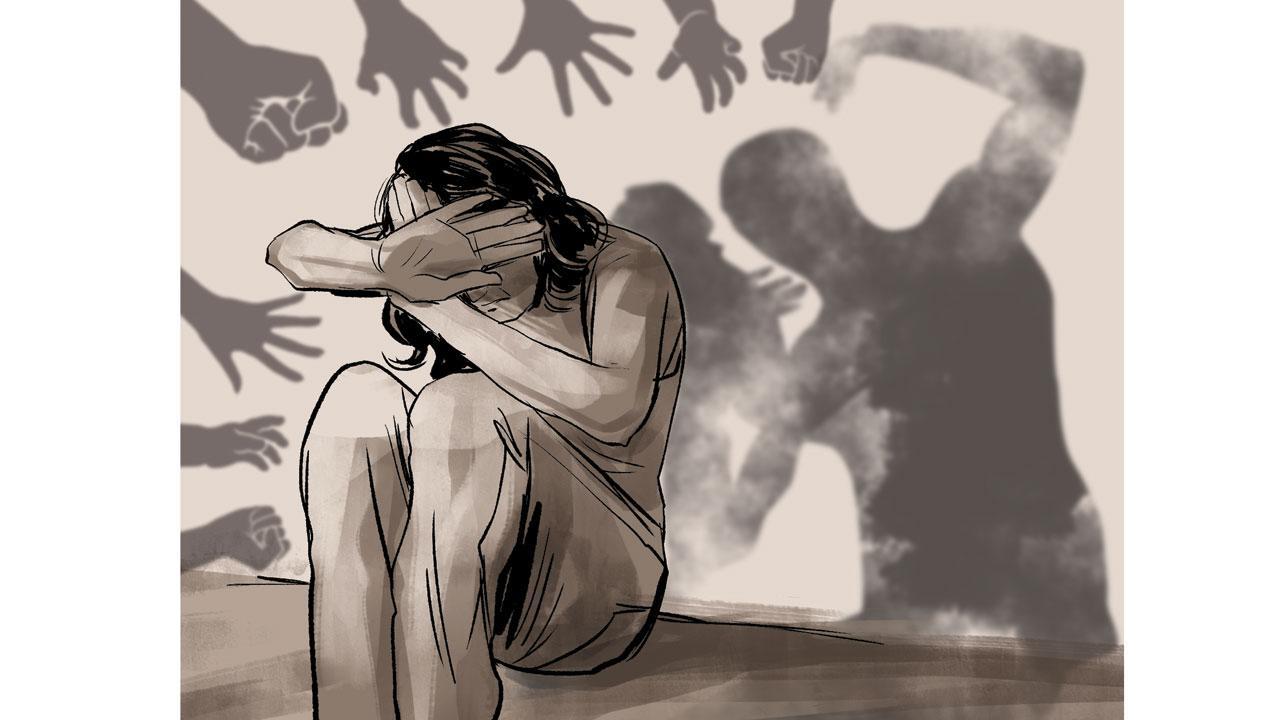They treat it merely as fodder for their propaganda, showing neither human shock, nor sadness

Illustration/Uday Mohite
![]() A murder which makes our insides quail has been instantly repurposed, including by some public servants, to rant about inter faith relationships or live-in relationships or ‘modern girls’ or even girls’ education, yaniki, beti bachao, beti mat padhao. Do you sense a strange similarity? The killer’s seemingly pathological, desensitised handling of the victim’s body finds a chilling parallel in the desensitised and opportunistic use by these conservative voices to that same body. They treat it merely as fodder for their propaganda, showing neither human shock, nor sadness.
A murder which makes our insides quail has been instantly repurposed, including by some public servants, to rant about inter faith relationships or live-in relationships or ‘modern girls’ or even girls’ education, yaniki, beti bachao, beti mat padhao. Do you sense a strange similarity? The killer’s seemingly pathological, desensitised handling of the victim’s body finds a chilling parallel in the desensitised and opportunistic use by these conservative voices to that same body. They treat it merely as fodder for their propaganda, showing neither human shock, nor sadness.
News outlets which otherwise struggle with factuality, have lost little time in excavating historical murders featuring live-in couples and relationship troubles. Most notably similar is the 1995 tandoor murder case in which Sushil Sharma shot his partner Naina Sahni and then tried to dispose off her body by burning it in a tandoor. Here is an interesting fact. In one of many interviews he gave on his release in 2018, Sushil Sharma said he had often thought about ending his life while imprisoned. He was saved by a fellow inmate—“another Brahmin arrested on charges of dowry death” as he describes him—who told him to read the scriptures to find purpose and stability. One of the operative phrases in this statement being: “arrested on charges of dowry death”.
The term dowry death is such a coy term for murder. Dowry murders, were mostly carried out by fire. Young brides whose marital families were unhappy with the dowry they brought, would pour kerosene on young women and burn them alive. Sometimes, they would lock these women in the kitchen to prevent escape and we can only assume they listened to the screams of the person in the throes of this torture. Later, they would claim that a kerosene stove had malfunctioned and exploded, causing accidental death or that this was a suicide. Sounds pretty grisly doesn’t it? At their peak, there were 5,000 such dowry murders a year in India.
Many parents consigned their daughters to such deaths, thanks to a belief that a woman’s body belongs in her husband’s home and no matter what—“doli mein jayegi aur niklegi toh arthi pe” (she will enter in her wedding palanquin and leave on her funeral pier). Her return would be a matter of dishonour and shame. Imagine the desperation and isolation of that thought, for the woman.
When young people choose something their parents oppose, the alienation becomes needlessly extreme. This is more true for young women, who frequently find themselves emotionally and socially isolated if they exercise some kind of agency over their bodies, in matters of love or desire. This creates an unhealthy desperation and a tendency to get stuck in abusive contexts.
We do not know right now how to interpret the terrible murder of Shraddha Walkar. But the indecent excitability of using her death to tell women this is what happens if they don’t stay within the limits of community and parental authority is not only unkind, but inaccurate. As the history of dowry murders and the intimate partner violence statistics of NFHS 5 discussed in this column just two weeks ago show, people treat the bodies of women who live within norms viciously too. Our society desperately needs more compassion and less judgemental attitudes to its young people.
Paromita Vohra is an award-winning Mumbai-based filmmaker, writer and curator working with fiction and non-fiction. Reach her at paromita.vohra@mid-day.com
 Subscribe today by clicking the link and stay updated with the latest news!" Click here!
Subscribe today by clicking the link and stay updated with the latest news!" Click here!








